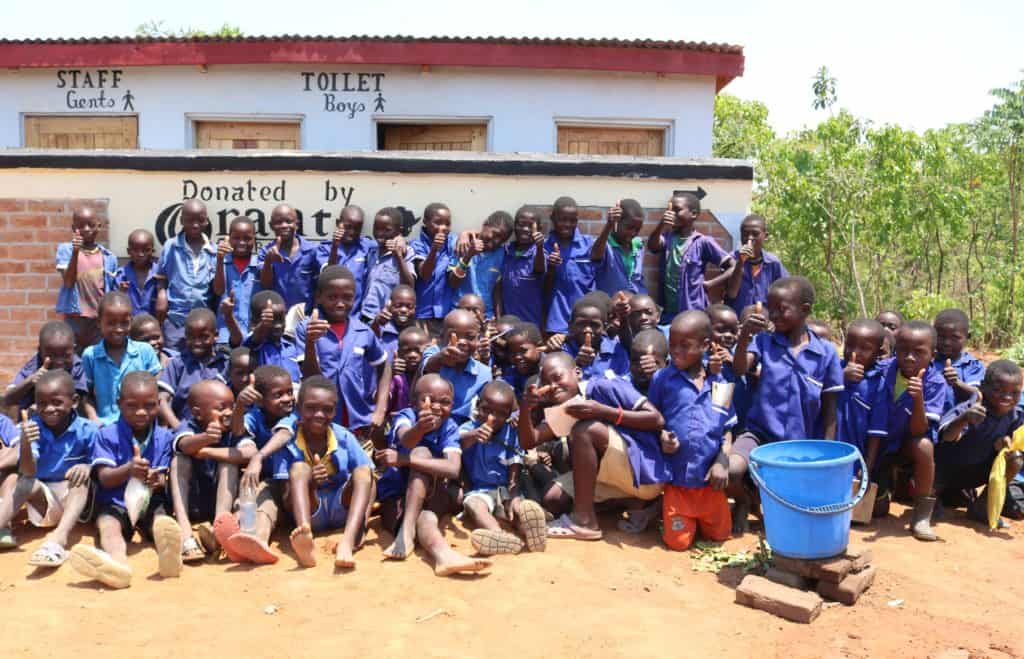Reimagining Hygiene for Every Pupil


For close to 7 years, students at Chilinkholi Primary School kept dropping out.
One learner named Precious Paulo says, “Since there were no toilets here, there were days I would leave school early for home. I would miss classes, which eventually affected my performance.”
A lack of toilets affected students’ ability to stay in school, but also their health.
“We used to go to that graveyard over there,” student Alexa Luka points, “because our school didn’t have even a single toilet. A week couldn’t pass without one of us suffering from diseases like diarrhea.”
Poor sanitation and hygiene are major contributors to the burden of disease and school dropouts in rural schools and communities. Most rural schools still practice open defecation due to a lack of toilets and appropriate sanitation resources on school premises. In response, Orant has built 8 blocks of pit latrines for Chilinkholi primary school. We have also built pit latrines at Madzo, Ndeka, and Chiliphiza Schools in Dowa.
Mayamiko Mwenda, Orant’s Water & Sanitation Project Manager, says, “Delivering WASH resources and information to communities has always been our greatest priority. With the wide-spreading pandemic, we have focused our WASH work in schools where learners are prone to contracting diseases”
Waleke Simwaka, Chilinkholi’s Headmaster, says, “The new toilet blocks have greatly contributed to students’ turn up at school. Before, school dropouts happened at an alarming rate, especially for girls who didn’t feel safe to use the bushes when on their periods. But now, many have returned to school.”
Precious Paulo says, “The new pit latrines are so clean, hygienic, and comfortable to use. I don’t miss classes anymore. ”
The headmaster notes that Orant’s building project helped not only the school, but also the communities around it. “Most households around here used to practice open defecation. But now, learning from Orant, they have constructed pit latrines.”
The rainy season is almost here. Diseases such as cholera are expected to spike. We are working tirelessly with communities and school facilities to ensure hygiene and sanitation practices keep communities and children safe. Learn more about our Water & Sanitation Program here.

